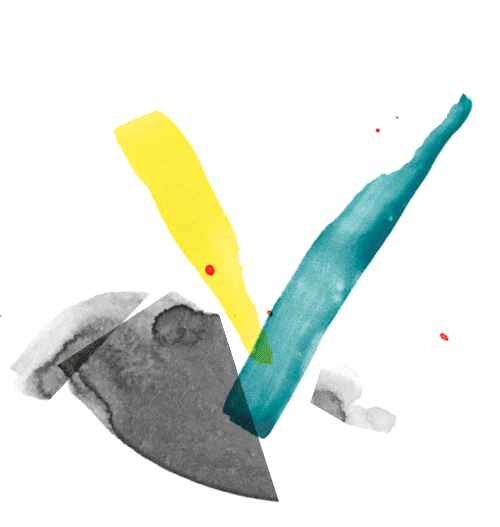

Sign up for our newsletters. You can change the settings or unsubscribe at any time.
Thank you for your subscription. We have sent you an e-mail with a confirmation link.


exp. 1
exp. 2
exp. 3

how to move an arche
Talk by Sinthujan Varatharajah with Duygu Örs
Friday, 28.2.2020
7–9 pm
RSVP required
In German
Free admission, limited capacity
Share: Facebook
how to move an arche
Talk by Sinthujan Varatharajah with Duygu Örs
Sinthujan Varatharajah explores issues of forced displacement, statelessness, and spatial inequalities, particularly those of Eelam Tamil people. “All that is left of us are shadows, for many, not even these shadows are meant to be ours.” By centering a displaced and marginalized people, he brings forth their forgotten stories by, quite literally, placing them on the map of Berlin. Varatharajah uses oral and visual memories to render the German capital into a Tamil city, an extension of a lost territory. He asks: “Can a city hold and belong to more than a singular history and people? And what does it mean for a stateless people to shape and create new spaces within others’ nation-states?” In his work, Varatharajah reads Berlin through the flight movements of a traumatized people through what was then, in the 1980s, a divided city. His living archive interrogates the many struggles for a people without sovereignty over land (and bodies) to mark spaces across different political regimes and to build as well as maintain stable archives. By investigating the many silences and absences within records of history, his archive challenges national memorialization cultures and seeks new meanings in old places.
Fragments of the Artist’s Diary, Berlin 11.2019–1.2020
Virginia de Medeiros
Diary
„Klaus Eckschen: Hörspiel“
Die Remise
Hörspiel
Solidarity and Storytelling. Rumors against Enclosure
María Berríos
Essay
Queer Ancient Ways: A Decolonial Exploration
Zairong Xiang
Monograph
Umbilical Cord Amulet
McCord Museum
Object
Expresiones de la locura: el arte de los enfermos mentales
Hans Prinzhorn
Monograph
St Sara Kali George
Delaine Le Bas
Soundscape
Género y colonialidad en busca de claves de lectura ...
Rita Segato
Essay
COVID-19 VIDEOS
Carlos Motta
Video
New Look
Flávio de Carvalho
Performance
Queer Ancient Ways: A Decolonial Exploration
Zairong Xiang
Monograph
III: La familia son quiénes se alegran con nuestros actos diarios. Detrás de las curadoras de la XI
María Berríos, Agustín Pérez Rubio
Conversation
Being in Crisis together – Einander in Krisen begegnen
Feminist Health Care Research Group (Inga Zimprich/Julia Bonn)
Online workshop
BLM KOREA ARTS
#BlackLivesMatter #BLMKoreaArts
Young-jun Tak
Statement
Weaving Solidarity
Renata Cervetto and Duygu Örs
Q&A
By using this website you agree to the use of cookies in accordance with our data privacy policy.

how to move an arche
Talk by Sinthujan Varatharajah with Duygu Örs
Friday, 28.2.2020
7–9 pm
RSVP required
In German
Free admission, limited capacity
Share: Facebook
how to move an arche
Talk by Sinthujan Varatharajah with Duygu Örs
Sinthujan Varatharajah explores issues of forced displacement, statelessness, and spatial inequalities, particularly those of Eelam Tamil people. “All that is left of us are shadows, for many, not even these shadows are meant to be ours.” By centering a displaced and marginalized people, he brings forth their forgotten stories by, quite literally, placing them on the map of Berlin. Varatharajah uses oral and visual memories to render the German capital into a Tamil city, an extension of a lost territory. He asks: “Can a city hold and belong to more than a singular history and people? And what does it mean for a stateless people to shape and create new spaces within others’ nation-states?” In his work, Varatharajah reads Berlin through the flight movements of a traumatized people through what was then, in the 1980s, a divided city. His living archive interrogates the many struggles for a people without sovereignty over land (and bodies) to mark spaces across different political regimes and to build as well as maintain stable archives. By investigating the many silences and absences within records of history, his archive challenges national memorialization cultures and seeks new meanings in old places.
Fragments of the Artist’s Diary, Berlin 11.2019–1.2020
Virginia de Medeiros
Diary
„Klaus Eckschen: Hörspiel“
Die Remise
Hörspiel
Weaving Solidarity
Renata Cervetto and Duygu Örs
Q&A
II: La Solidaridad va Más Allá de un Concepto. ...
Lisette Lagnado, Agustín Pérez Rubio
Conversation
New Look
Flávio de Carvalho
Performance
Solidarity and Storytelling. Rumors against Enclosure
María Berríos
Essay
COVID-19 VIDEOS
Carlos Motta
Video
Glossary of Common Knowledge
L’Internationale Online
Glossary
Umbilical Cord Amulet
McCord Museum
Object
Glossary of Common Knowledge
L’Internationale Online
Glossary
Género y colonialidad en busca de claves de lectura y de un vocabulario estratégico descolonial
Rita Segato
Essay
Fragments of the Artist’s Diary, Berlin 11.2019–1.2020
Virginia de Medeiros
Diary
COVID-19 VIDEOS
Carlos Motta
Video
Grupo Experimental de Cine en acción
Gabriel Peluffo
Drawing
Museo de la Solidaridad Salvador Allende (MSSA) in Berlin
A conversation between María Berríos and Melanie Roumiguière
Conversation
By using this website you agree to the use of cookies in accordance with our data privacy policy.

how to move an arche
Talk by Sinthujan Varatharajah with Duygu Örs
Friday, 28.2.2020
7–9 pm
RSVP required
In German
Free admission, limited capacity
Share: Facebook
how to move an arche
Talk by Sinthujan Varatharajah with Duygu Örs
Sinthujan Varatharajah explores issues of forced displacement, statelessness, and spatial inequalities, particularly those of Eelam Tamil people. “All that is left of us are shadows, for many, not even these shadows are meant to be ours.” By centering a displaced and marginalized people, he brings forth their forgotten stories by, quite literally, placing them on the map of Berlin. Varatharajah uses oral and visual memories to render the German capital into a Tamil city, an extension of a lost territory. He asks: “Can a city hold and belong to more than a singular history and people? And what does it mean for a stateless people to shape and create new spaces within others’ nation-states?” In his work, Varatharajah reads Berlin through the flight movements of a traumatized people through what was then, in the 1980s, a divided city. His living archive interrogates the many struggles for a people without sovereignty over land (and bodies) to mark spaces across different political regimes and to build as well as maintain stable archives. By investigating the many silences and absences within records of history, his archive challenges national memorialization cultures and seeks new meanings in old places.
Fragments of the Artist’s Diary, Berlin 11.2019–1.2020
Virginia de Medeiros
Diary
„Klaus Eckschen: Hörspiel“
Die Remise
Hörspiel
Feminist Health Care Research Group
Web archive
COVID-19 VIDEOS
Carlos Motta
Video
II: La Solidaridad va Más Allá de un Concepto. ...
Lisette Lagnado, Agustín Pérez Rubio
Conversation
El primer nueva corónica y buen gobierno
Felipe Guamán Poma de Ayala
Chronicle
O Bailado do Deus Morto
Flávio de Carvalho
Play
Invitation to the Species: Cecilia Vicuña
Tamaas / Cecilia Vicuña
Podcast
Solidarity and Storytelling. Rumors against Enclosure
María Berríos
Essay
III: La familia son quiénes se alegran con nuestros actos diarios. Detrás de las curadoras de la XI
María Berríos, Agustín Pérez Rubio
Conversation
A World Without Bones
Agustín Pérez Rubio
II: La Solidaridad va Más Allá de un Concepto. Entre las Curadoras de la XI Berlin Biennale
Lisette Lagnado, Agustín Pérez Rubio
Conversation
Invitation to the Species: Cecilia Vicuña
Tamaas / Cecilia Vicuña
Podcast
Flávio de Carvalho: Fazenda Capuava
Archive of Lisette Lagnado
Photographs
Solidarity and Storytelling. Rumors against Enclosure
María Berríos
Essay
By using this website you agree to the use of cookies in accordance with our data privacy policy.

how to move an arche
Talk by Sinthujan Varatharajah with Duygu Örs
Friday, 28.2.2020
7–9 pm
RSVP required
In German
Free admission, limited capacity
Share: Facebook
how to move an arche
Talk by Sinthujan Varatharajah with Duygu Örs
Sinthujan Varatharajah explores issues of forced displacement, statelessness, and spatial inequalities, particularly those of Eelam Tamil people. “All that is left of us are shadows, for many, not even these shadows are meant to be ours.” By centering a displaced and marginalized people, he brings forth their forgotten stories by, quite literally, placing them on the map of Berlin. Varatharajah uses oral and visual memories to render the German capital into a Tamil city, an extension of a lost territory. He asks: “Can a city hold and belong to more than a singular history and people? And what does it mean for a stateless people to shape and create new spaces within others’ nation-states?” In his work, Varatharajah reads Berlin through the flight movements of a traumatized people through what was then, in the 1980s, a divided city. His living archive interrogates the many struggles for a people without sovereignty over land (and bodies) to mark spaces across different political regimes and to build as well as maintain stable archives. By investigating the many silences and absences within records of history, his archive challenges national memorialization cultures and seeks new meanings in old places.
Fragments of the Artist’s Diary, Berlin 11.2019–1.2020
Virginia de Medeiros
Diary
„Klaus Eckschen: Hörspiel“
Die Remise
Hörspiel
New Look
Flávio de Carvalho
Performance
Flávio de Carvalho: Fazenda Capuava
Archive of Lisette Lagnado
Photographs
Género y colonialidad en busca de claves de lectura ...
Rita Segato
Essay
Queer Ancient Ways: A Decolonial Exploration
Zairong Xiang
Monograph
Umbilical Cord Amulet
McCord Museum
Object
Glossary of Common Knowledge
L’Internationale Online
Glossary
O Bailado do Deus Morto
Flávio de Carvalho
Play
III: La familia son quiénes se alegran con nuestros actos diarios. Detrás de las curadoras de la XI
María Berríos, Agustín Pérez Rubio
Conversation
St Sara Kali George
Delaine Le Bas
Soundscape
New Look
Flávio de Carvalho
Performance
Género y colonialidad en busca de claves de lectura y de un vocabulario estratégico descolonial
Rita Segato
Essay
Feminist Health Care Research Group
Web archive
A World Without Bones
Agustín Pérez Rubio
By using this website you agree to the use of cookies in accordance with our data privacy policy.
By using this website you agree to the use of cookies in accordance with our data privacy policy.




